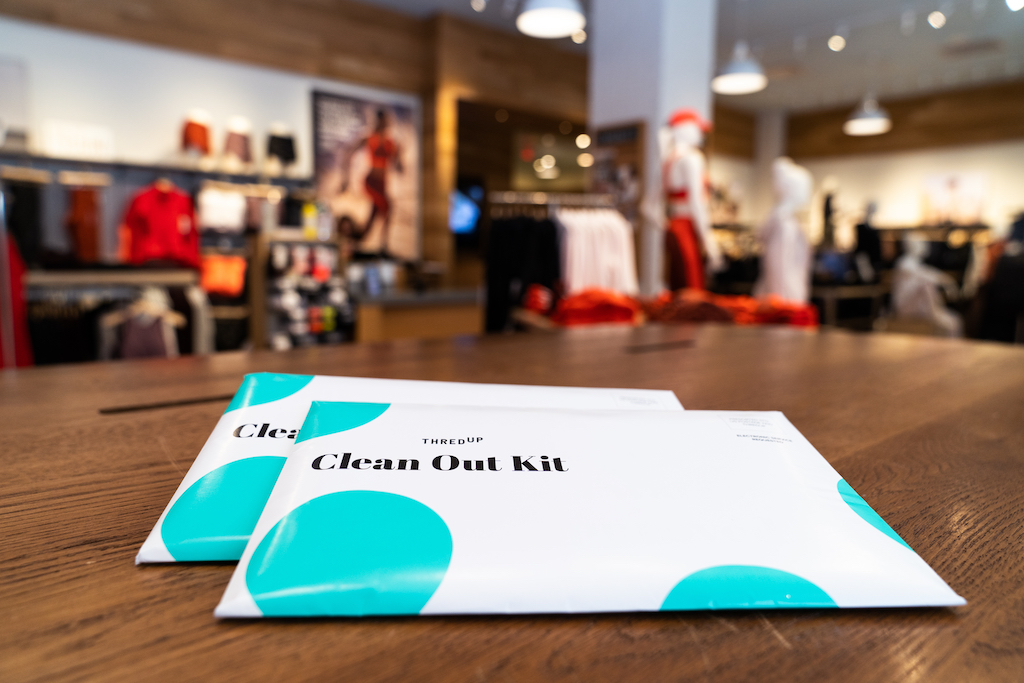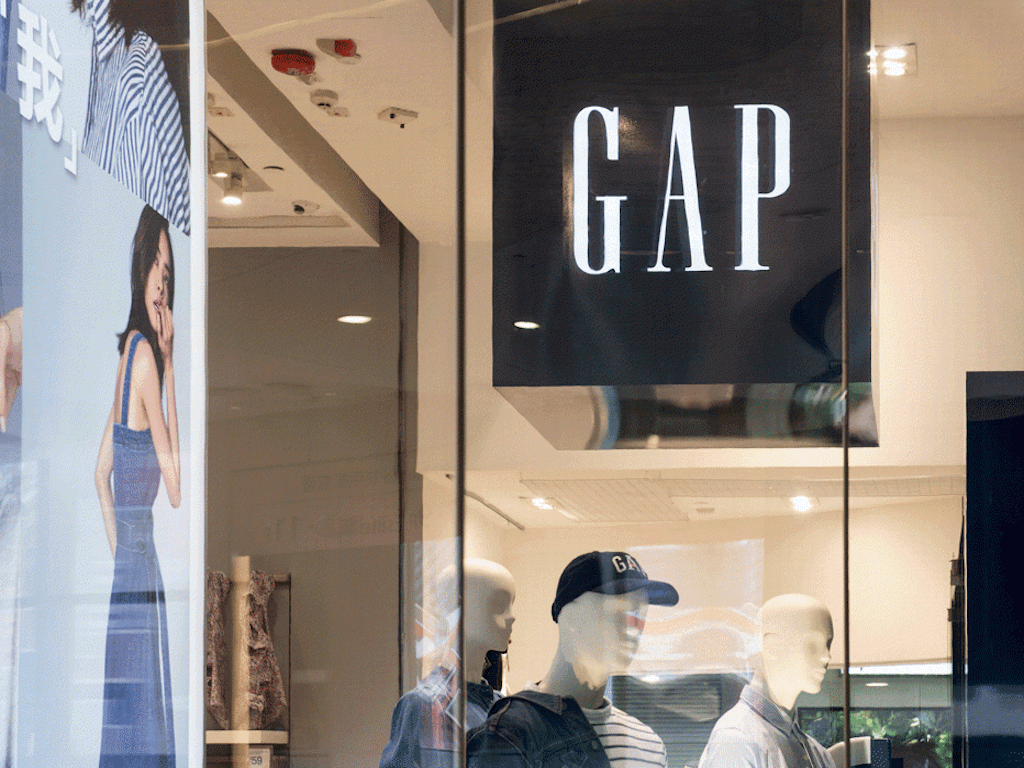3 Mins Read
Gap has become the latest retailer to hop on the secondhand resale market, following multiple high-profile players looking to stay relevant and cash-in on shifting consumer tastes for sustainable fashion. In partnership with one of the world’s biggest thrift consignment platforms thredUP, customers can mail in their clothes for donation in exchange for credits to use at Gap’s stores. With more major brand names embracing resale, it is clear that sustainable fashion is having a global moment.
In a bid to adapt to shifting consumer preferences for sustainable fashion, Gap has announced a partnership with thredUP that will allow its customers to send their used clothes to the consignment platform in exchange for credit at its chain stores. From April onwards, select Gap stores will be distributing thredUP’s clean-out bags, which customers can use to mail their items and collect shopping credit.
Customers can choose to spend their credit at Gap’s namesake stores, or at a number of Gap-owned brands in the United States, including Banana Republic, Athleta and Janie and Jack.
“As the resale revolution continues to gain momentum, participating in re-commerce is not only good for our planet, but good for business. Our customers are diversifying their closets, whether with new clothing, rental pieces or secondhand goods,” said president of Gap Inc.’s specialty brands Mark Breitbard.

Read: Secondhand fashion is taking over the world, from thrift to luxury
The exploding resale and secondhand trend comes as conventional linear apparel models have struggled to grow in recent years. The sector has experienced multiple high-profile bankruptcies, including American Apparel and Forever 21. Gap has felt the negative impact from shifting consumer trends too, with sales slowing down to low-single digits last year, sending its stock to fall by 30% over the past 12 months.
Meanwhile, the secondhand apparel market has taken off. According to figures from GlobalData Retail, 56 million women purchased secondhand items in 2018, representing a 27% jump from the year before. 51% of shoppers also reported that they plan to continue spending a greater share on resale goods in the next half-decade, the report outlined.
In thredUP’s 2019 report, the company predicts that the sector will reach US$51 billion within the next five years, overtaking the mainstream fashion market by 2028. The consignment platform itself has already experienced astonishing growth since its inception in 2006, raising more than US$300 million in capital funding and investment from institutional names such as Goldman Sachs and Highland Capital Partners.

Read: ThredUP launches calculator for your wardrobe’s environmental footprint
Much of the shift in consumer tastes has been driven by growing awareness about the impact of fashion. According to the Ellen MacArthur Foundation, a truckload of textile waste is being landfilled every single second. Aside from the waste aspect, the manufacturing of textiles generates huge amounts of greenhouse gases – fashion is responsible for a whopping 10% of global carbon emissions, more than airline and maritime shipping combined. It also produces 20% of wastewater as toxic contaminants such as synthetic dyes and bleaches are commonly used in the manufacturing process.
“I think it is becoming table-stakes that brands and retailers are making a statement that they support sustainability. We can’t deny there is a movement,” said Melissa Gonzalez, CEO of retail consulting firm The Lionesque Group in conversation with CNBC.
Gap’s move follows a number of resale initiatives emerging in fashion since last year. Fast fashion giant H&M in Stockholm and sister brand COS in China is now offering rental and repair services, and Asian e-commerce giant Zalora now offers a preloved collection. Upmarket retailers are not exempt from the trend, with Harvey Nichols and Selfridges both introducing refurbishment services to extend products’ lifespan in resale.
Want to know the latest in sustainable fashion? Read more fashion news on Green Queen here.
Lead image courtesy of Getty Images.




